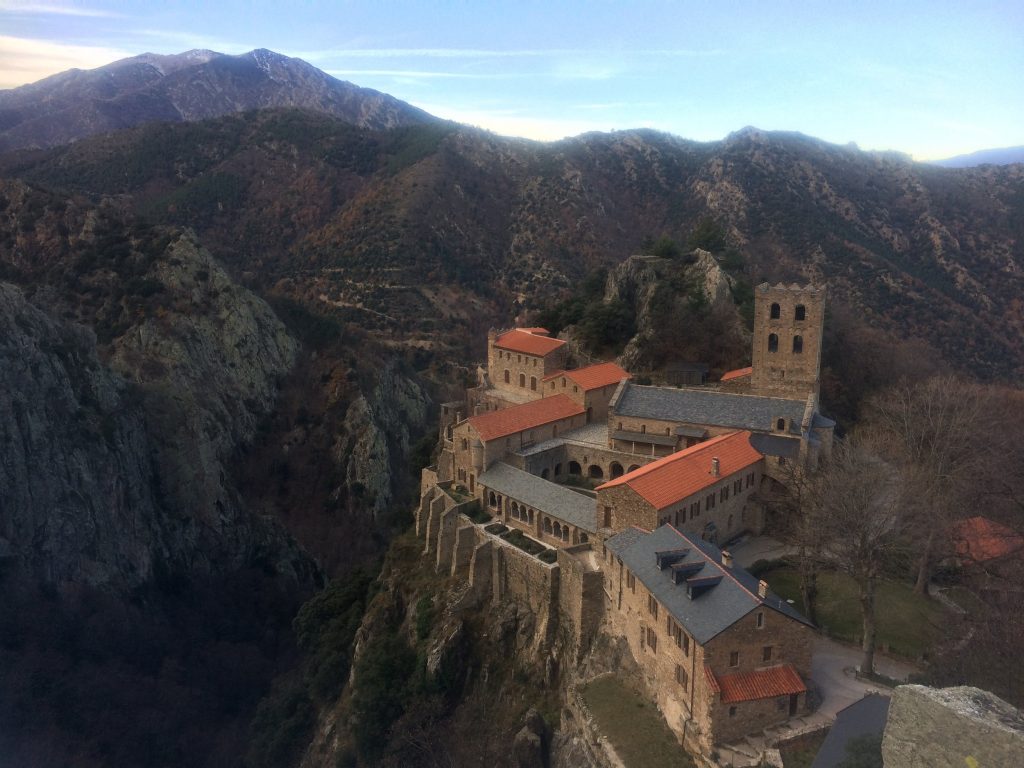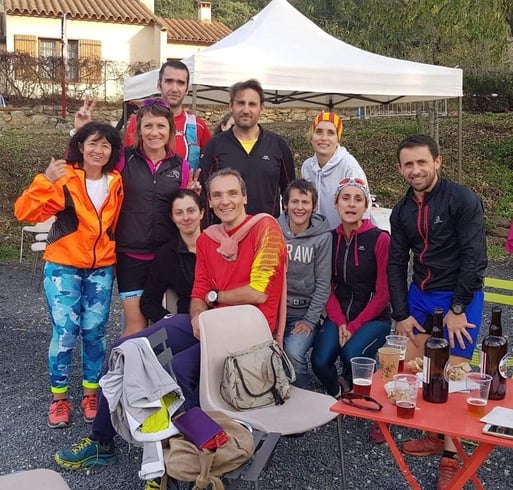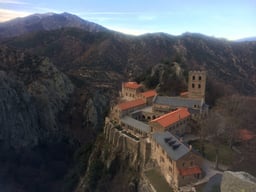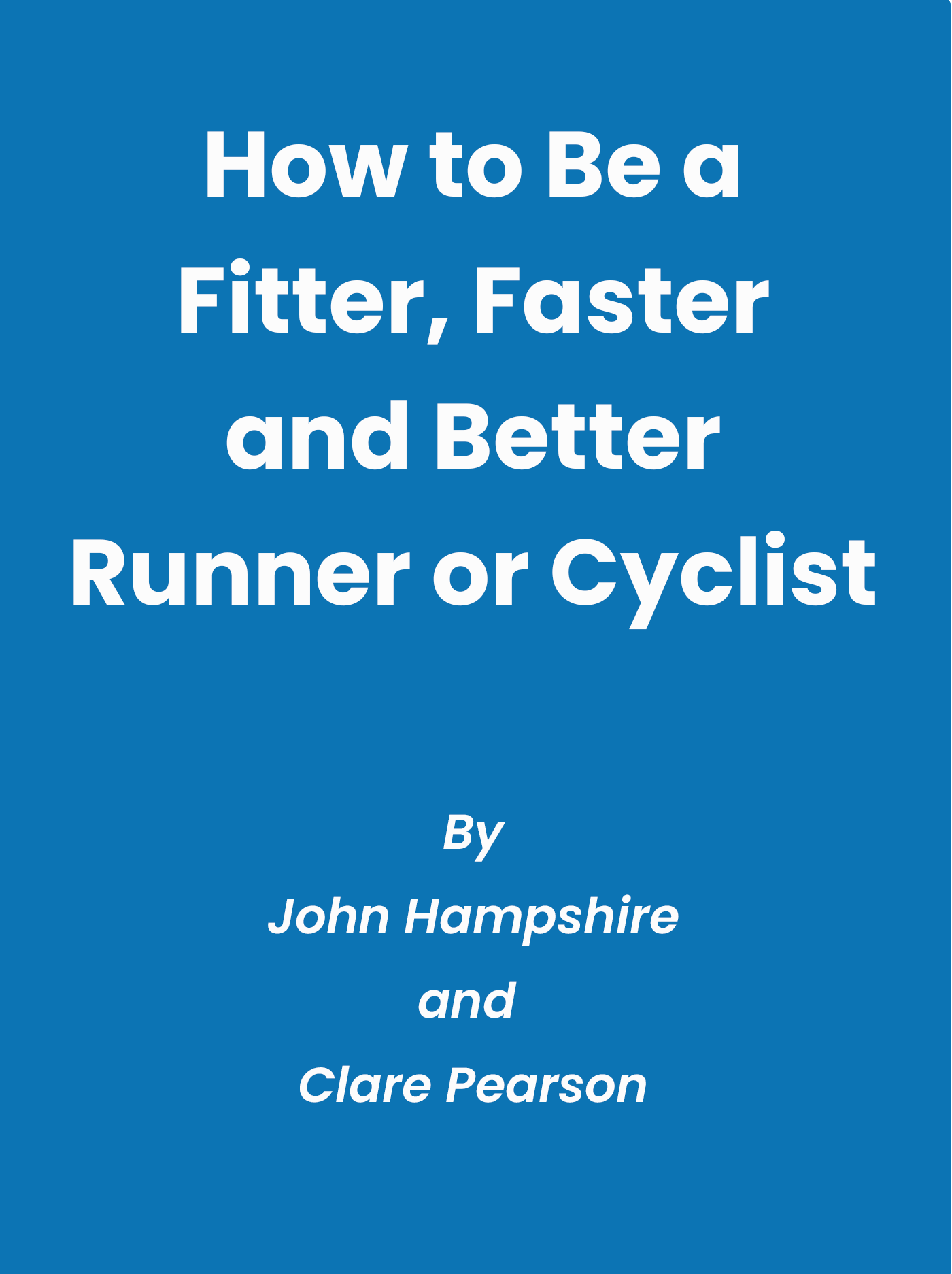Why run a mountain race if I know I can’t win?

There are many people who run mountain races who never win or get a podium finish. In fact, most people are in this situation and when I first started mountain racing, I never expected to win at all. The fact that I am sometimes lucky enough to stand on the podium is a lovely bonus but certainly not the reason that I am a mountain runner, or that I take part in races.
So if we’re not racing to win, why do we race? Over the last three weekends I’ve run three races, all of them mountain races but all of them for different reasons; I didn’t win any of them. It occurred to me that there are many different reasons why people run mountain races and that for a new comer to the sport, or for an onlooker the reasons may not be obvious. It certainly isn’t always about winning!
Les Sentiers de Germain – racing for a result.
This was the first of my three races and was in my training plan as the final of three races I had planned to prepare for and run well; I was hoping for a good result.
However, in the week leading up to the race, I was already beginning to modify my expectations: ‘un sentier’ is a small, usually single track, path and I concluded that if the race started in town on a relatively flat surface there would be many fast starters, particularly fast starting male runners, who would be ahead of me once we got to ‘les sentiers’ without much room for me to take them on the climb, my particular strength in mountain races.
The race started as expected on the roads leading out of the town and I was quite far back in the field by the time we reached the climb. But I had trained to do well so I pushed hard, taking every opportunity to progress up the field, scrambling up rocks, leaping over bushes and began gaining places.
Racing like this is tiring and on the final two kilometres coming back into the town I was tired and struggling to maintain a decent pace. My fifth place went down to sixth as I was outsprinted in the final 200m. However, I hung on to a third vet place, which was really pleasing and satisfying for my hard effort!
This was a 12km race which I knew I could run at or around my threshold pace. My experience at these races meant I knew I could get into the top ten women and could possibly podium. I had trained hard over the weeks before and was prepared for this specific race. I was racing to see how well I could do.
Argeles-Sur-Mer – Montesquieu-des-Alberes – racing for fun.

I had known about the race from Argeles to Montequieu for some time and had hoped to do the relay – two legs of 20km each. I like this distance and I love doing relays with friends where we can share the experience of a tough race and enjoy a friendly chat over a beer afterwards.
There was a brief moment where a friend almost convinced me to do the whole 40km as a solo, but a reality check made me realise I was not fit enough!
A friend of a friend agreed to team up with me as I was struggling to find a partner. It was great to set off together, some doing the relay, some doing the full 40km. At the hand over point I was able to chat with others who were waiting for their team mates and to see my friends doing the marathon pass through.
We then all drove to the end to cheer the finishers in, enjoy that long awaited drink and swap stories together. This is one aspect of running that I love, meeting like minded people, having fun in beautiful places and seeing others doing amazing. Many of my friends ran really well and got prizes that day and watching them do so is a pleasure I enjoy both as a fellow runner and as a coach.
This race was not something I had particularly trained for, I knew I could run 20km as I do this for my long run each week and I wanted to enjoy a day with my friends. I was running for fun.
Le Téléthon – local races and charities.

Every now and then, if you’re lucky enough to live in the mountains, there’s a race on your doorstep. And if you’re that lucky, well…it would be rude not do it, wouldn’t it?
My local running club, Trail Vernet Aventure, put on a race each December for a the children’s charity Téléthon. The main organisers had spent some time planning a new route this year and we all lent a hand in flagging the course the day before.
There is something very motivating about running through your own village on the trails you train on every day. There’s also something very heartwarming about events which raise money for good causes.
Loads of people came out to run, walk or ‘cani-court’ (race with their dogs) the event. Despite my tiredness I enjoyed the race and seeing people of all different abilities take part and give some money to a worthy cause.
Racing to practise racing
If you’ve got a big race coming up that you want to do well at, it’s always a good idea to have a few practice races, especially if you’re new to racing or are coming back after a long break. For shorter races you can race the same distance, but for longer events, it may need to be significantly shorter.
Practice races help you
- Get used to the race atmosphere and starts
- Pace your race better
- Give you a good idea of how fit you are and how you might expect to perform in your actual race
- Practise things like eating, drinking and progressing through the field
Racing can feel very different from training, doing a few practice ones can really help your nerves for the big race. Even if you are doing less than half the distance of your ultra run, you can still have some idea of how training is going.
So racing isn’t always about winning, there are lots of reasons to race and you can decide for yourself what goals you want to achieve when you enter. Perhaps the most important thing is to challenge yourself, enjoy new places, spend time with old friends and meet some new ones – at least that is the case for me.
Additional questions
Should I enter a race if I’m not sure I can finish? Some ultra events invariably hold a little of the unknown about them and part of the challenge of the race can be seeing if you can complete the distance. For shorter races, it’s always better to start off at a pace you can finish and if you’ve done the training you will be able to finish because you will have done the distance in training.
When to retire? Retiring from a race, especially one you’ve trained hard for, is a really tough decision, but one that sometimes has to be made. If you think you are going to put yourself or others such as race marshalls in danger by continuing, or you develop an injury, retiring is always the best option. It can be others that make that suggestion to you and it’s important to be able to listen to them despite the adrenaline of the race. If like me you love running, you’ll want to be able to run another day, not injure yourself beyond repair for the sake of one event.
Tags:
Mountain RunningDecember 14, 2018

Comments